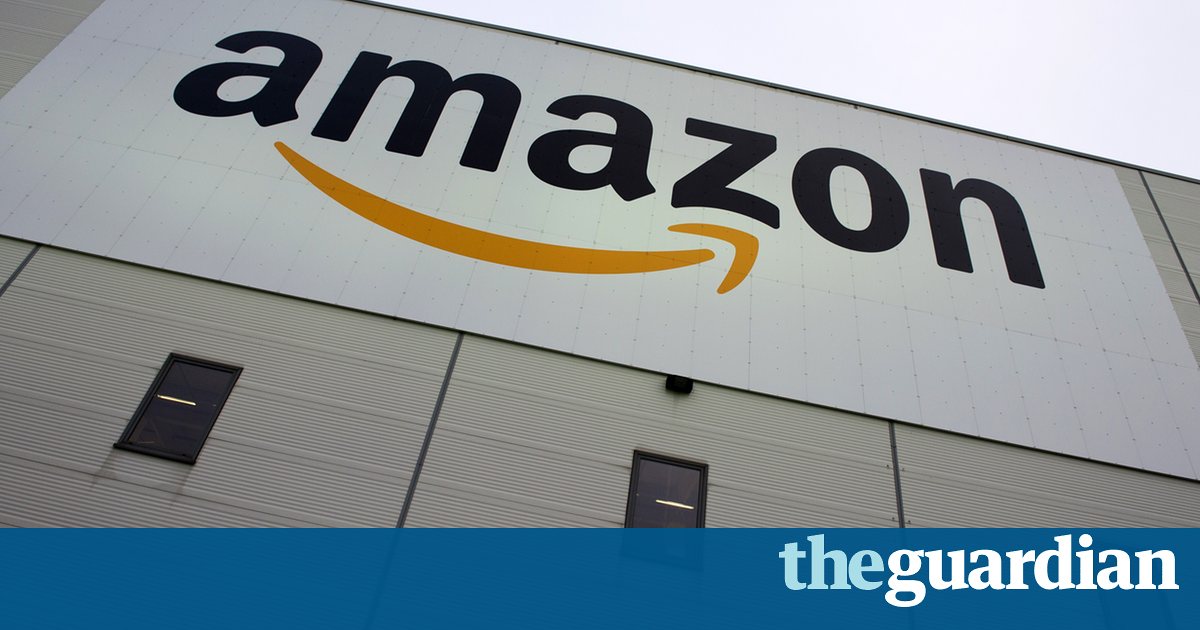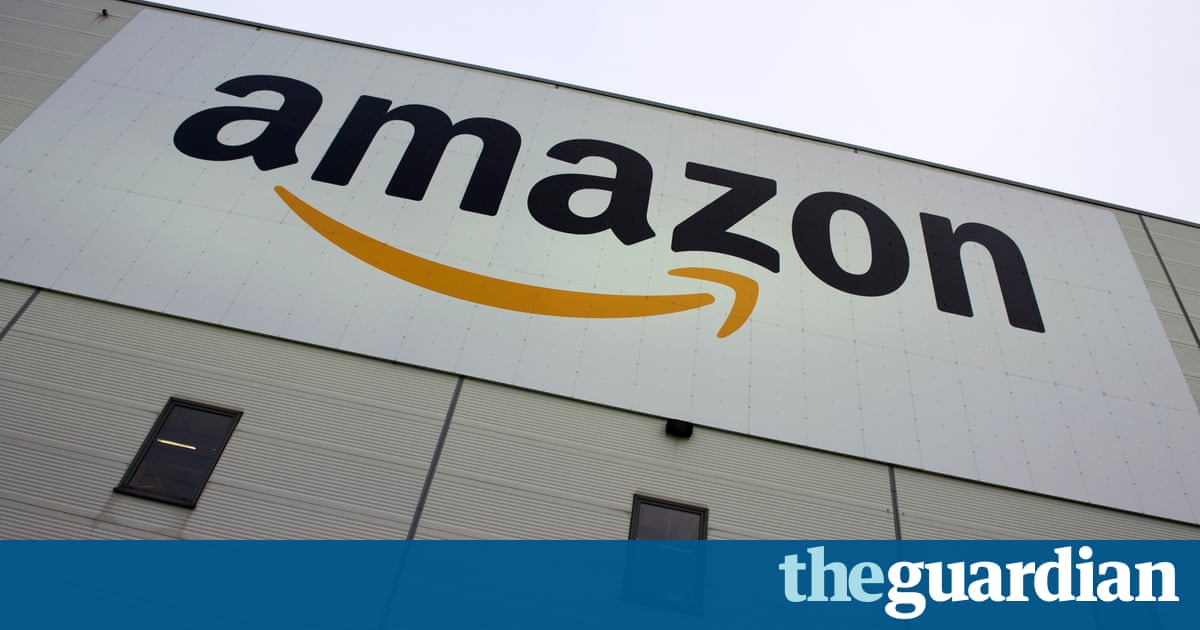Data populists must seize our information for the benefit of us all | Evgeny Morozov

Five US tech giants have harvested our data. This treasure must be shared among the people who provide it

Of all the big firms in Silicon Valley, Amazon had the most to lose from Donald Trumps presidency. And lose it did, albeit briefly, its share price dropping 5% shortly after the election.
During the campaign, Trump warned that Amazon had a huge antitrust problem a reasonable stance for the populist that he once aspired to be. Most likely, though, his animosity had more to do with the fact Amazons founder, Jeff Bezos, also owns the Washington Post, an influential newspaper that took an early strong dislike of Trump. By the time of Amazons massive cloud-computing conference, which kicked off in Las Vegas at the end of November, such squabbles seem to have been forgotten. Amazon went on to wow the audience with impressive gimmicks. Did you know it has a truck yes, a real truck to drive your data to the cloud? Apparently, its much faster than using networks.
Amazon also unveiled its cloud-based artificial intelligence services, including systems for recognising objects in images, processing speech commands, and operating chatbot applications. Thus, its joining Google, Microsoft, Facebook, and IBM in the already crowded field of advanced AI.
For Amazon, this is hardly new territory. By now, it must have built a robust AI operation for its own use, what with all the data it has amassed on its users (its precisely the troves of such data that explain recent breakthroughs in one of the most promising strands of contemporary AI deep learning).
Now, Amazon wants to make money by letting others tap into its existing AI infrastructure. It did something similar a decade ago, when it realised it had a lot of spare server infrastructure it could lend out to others. A clever move: today Amazons cloud services often generate more profits than its retail operations in North America.
Its nascent AI operation is likely to rely on a similar model: clients will pay to tap into Amazons ability to recognise images or voices and insert such magic into their app or service. The other four AI giants are also unlikely to settle on a charity model. As they integrate AI products into healthcare, education, energy and transport, they will eventually pass on the bill to citizens either directly, as usage fees, or indirectly, through lucrative contracts with institutions such as the NHS.
The political implications are mind-boggling. Five American firms Chinas Baidu being the only significant foreign contender have already extracted, processed and digested much of the worlds data. This has given them advanced AI capabilities, helping to secure control over a crucial part of the global digital infrastructure. Immense power has been shifted to just one sector of society as a result.

Imagine, for a moment, that all the worlds land suddenly became the property of just five big banks or property developers, with the rest of us having to pay a fee whenever our feet touched the ground. This wouldnt be unprecedented. Such efforts of aristocratic and financial elites to snatch up and profit from land spawned new economic philosophies, like georgism, and boosted policy interventions, like the land value tax. But what to do about similar efforts to snatch up data?
Two approaches have proven particularly popular. One celebrates alternative models of economic organisation for example, cooperatives that are less exploitative than platforms such as Amazon or Microsoft. Such efforts at platform cooperativism are worthwhile; occasionally, they do produce impressive and ethical local projects.
There is no reason why a cooperative of drivers in a small town cannot build an app to help them beat Uber locally. But there is also no good reason to believe that this local cooperative can actually build a self-driving car: this requires massive investment and a dedicated infrastructure to harvest and analyse all of the data. One can, of course, also create data ownership cooperatives but its unlikely they will scale to a point of competing with Google or Amazon.
Another approach simply to break up or shrink big technology firms is also problematic. It assumes that data is simply like any other product, like, say, oil or widgets. Such a view, however, is inaccurate. Oil doesnt become better or more valuable simply because you store more of it in your warehouse. Data, however, does: the more of it you harvest, the better the insights and the higher the savings you can pass on to citizens. Todays advances in AI were possible only because a handful of companies have, in fact, enjoyed the status of quasi monopolies. Ten thousand startups, each owning a tiny piece of Googles data empire, would never produce a self-driving car either.
Leftwing populists, such as Bernie Sanders and Elizabeth Warren, do not seem to realise that data has its own properties, insisting, instead, that giant tech platforms harm competition. One fights this threat by limiting the size of these firms and ensuring they dont extend their tentacles into too many sectors and technologies. In other words, the goal is to make the marketplace more competitive.
However, in the absence of active government policy on AI, a truly competitive marketplace will never deliver on the massive expectations, as it will be too fragmented to create value from all the data. Nor will it deliver the cheap goods that consumers faced with falling incomes have come to depend upon. The rhetoric of improving competition cannot lie at the heart of economic populism in the 21st century. A much better agenda for left-leaning populists would be to insist that data is an essential, infrastructural good that should belong to all of us; it should not be claimed, owned, or managed by corporations. Enterprises should, of course, be allowed to build their services around it but only once they pay their dues. The ownership of this data and the advanced AI built on it should always remain with the public. This way, citizens and popular institutions can ensure that companies do not hold us hostage, imposing fees for using services that we ourselves have helped to produce. Instead of us paying Amazon a fee to use its AI capabilities built with our data Amazon should be required to pay that fee to us.
This points to a broader deficiency with most populist projects of the left: all they can promise is just more of the same but done better, utopia be damned. So, antitrust regulations will get tougher; jobs will magically come back; the welfare state will once again be as generous as it was in the 1960s.
However, the jobs wont come back because they never really left: they were simply automated out of existence. Making big data firms smaller is not a programme that will excite anyone with even a rudimentary understanding of what makes these firms so effective and their products so affordable. Waxing nostalgic about the highly intrusive welfare state while Silicon Valley elites cheerlead for the creative flexibility of basic income also seems suicidal.
The lefts inability to master this new populist language is all the more puzzling, given that technology is one issue where rightwing populists such as Trump and Ukip have little to offer. Its even hard to imagine what the rightwing version of data populism would be like, other than to say that we have been living and breathing such populism, albeit in a polished, neoliberal version of Barack Obama or David Cameron, for the last decade.
Data populism, in other words, is one issue on which the populist left does have a genuine advantage, but only if it understands that the traditional progressive agenda, like everything else these days, has been utterly disrupted by digital technology. Instead of denying it, progressive populists should use the data debate as an opportunity to re-establish their relevance to the crucial economic debates of today.